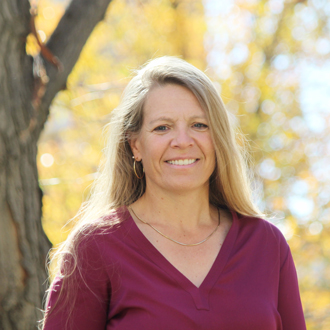Kidney Health
Global health: Kidney health research and practice | Salud Global: Investigación y Práctica de la Salud Renal
What is CKDu? / ¿Qué es CKDu?
Chronic Kidney Disease of unknown cause (CKDu), also known as Mesoamerican Nephropathy, has been emerging since the 1970s. CKDu is a progressive renal disease that is often diagnosed at a very late stage due to a lack of early clinical signs and symptoms. Tens of thousands of premature deaths due to this disease have occurred over the past two decades throughout Latin America, Sri Lanka, India, and other nations. CKDu appears to be unrelated to traditional causes of kidney failure such as diabetes and hypertension. Men in their 20’s to 50’s who work in agriculture in hot, tropical areas have the highest number of reported cases. However, emerging evidence has demonstrated that CKDu also affects women and children residing in the same agricultural communities.
Our team has published several articles providing overviews of potential contributors to CKDu including occupational, environmental, and social factors (see articles 1-3).
La enfermedad renal crónica de causa desconocida (ERCnt) o CKDu por sus siglas en ingles, también conocida como nefropatía mesoamericana, ha estado surgiendo desde la década de 1970. CKDu es una enfermedad renal progresiva que a menudo se diagnostica en una etapa muy tardía debido a la falta de síntomas clínicos tempranos. En las últimas dos décadas se han producido miles de muertes prematuras debidas a esta enfermedad en toda América Latina, Sri Lanka, India y otras naciones. CKDu parece no estar relacionado con las causas tradicionales de insuficiencia renal, como la diabetes y la hipertensión. Los hombres de entre 20 y 50 años que trabajan en la agricultura en zonas cálidas y tropicales tienen el mayor número de casos reportados. Sin embargo, las nuevas pruebas han demostrado que CKDu también afecta a las mujeres y los niños que residen en las mismas comunidades agrícolas.
Nuestro equipo ha publicado varios artículos que proporcionan una visión general de los posibles contribuyentes a CKDu, incluidos los factores ocupacionales, ambientales y sociales (ver artículos 1-3).
Applying a Total Worker Health® approach / Bienestar Integral del Trabajador
CHWE has been partnering with Pantaleon, a Latin American agribusiness, since 2016 to improve the health, safety, and well-being of Pantaleon’s workforce through a Total Worker Health (TWH) approach. Evidence suggests that CKDu is caused by many factors that likely include both work- and non-work-related risk factors. To apply the concepts of TWH to CKDu, we have taken a broader health, safety, and well-being perspective to enhance workplace policies and programs focused on hydration (with both water and electrolytes), rest, and nutrition, and also by increasing workplace health surveillance.
Through our collaboration, we have produced several practical, actionable interventions to benefit workers today, including interventions to optimize work conditions by reducing dehydration and heat stress and thereby decreasing kidney injury and CKDu among sugarcane workers (see articles 4-6).
CHWE se ha asociado con Pantaleon, una agroindustria latinoamericana, desde 2016 para mejorar la salud, la seguridad y el bienestar de la fuerza laboral de Pantaleon a través de un enfoque de Total Worker Health (TWH). La evidencia sugiere que la CKDu es causada por muchos factores que probablemente incluyen factores de riesgo relacionados con el trabajo y no relacionados con el trabajo. Para aplicar los conceptos de TWH a CKDu, hemos adoptado una perspectiva más amplia de salud, seguridad y bienestar para mejorar las políticas y programas en el lugar de trabajo centrados en la hidratación (con agua y electrolitos), el descanso y la nutrición, y también mediante el aumento de la vigilancia de la salud en el lugar de trabajo.
A través de nuestra colaboración, hemos producido varias intervenciones prácticas para beneficiar a los trabajadores de hoy, incluyendo intervenciones para optimizar las condiciones de trabajo mediante la reducción de la deshidratación y el estrés por calor y, por lo tanto, la disminución de la lesión renal y CKDu entre los trabajadores de la caña de azúcar (ver artículos 4-6).
Current work / Trabajo actual
We are studying biological pathways of injury and evaluating possible etiologic agents for CKDu (see articles 7-16) as well as examining climate conditions that can amplify existing worker health and safety issues (learn more about our Climate, Work & Health Initiative).
In 2021, we received funding from the U.S. NIH’s National Institute for Environmental Health Sciences (NIEHS) for two new studies to further investigate exposures through air and soil that, either alone or combined with extreme heat exposure and other risk factors, may result in acute kidney injury and ultimately, CKDu. Both studies will begin fieldwork in Guatemala in the fall of 2021 when the sugarcane harvest begins.
Study 1: Particulate exposure and kidney health
The goal of this 5-year study is to examine the effects of air pollution and climate on the kidney health of male sugarcane workers in Guatemala.
Study 2: Women's airborne exposure and kidney health in Guatemala
The goal of this 3-year study is to examine the environmental determinants of kidney injury in female sugarcane workers and female community members in Guatemala.
Estamos estudiando las vías biológicas de lesión y evaluando posibles agentes etiológicos para CKDu (ver artículos 7-16), así como examinando las condiciones climáticas que pueden amplificar los problemas existentes de salud y seguridad de los trabajadores (enlace a la página de CWHI).
En 2021, recibimos fondos del Instituto Nacional de Ciencias de la Salud Ambiental (NIEHS por sus siglas en ingles) de los Estados Unidos. para dos nuevos estudios que investigaran más a fondo las exposiciones a través del aire y el suelo que, ya sean solas o combinadas con la exposición al calor extremo y otros factores de riesgo, pueden resultar en una lesión renal aguda y desarrollarse en CKDu. Ambos estudios darán inicio en Guatemala en el otoño de 2021, cuando comience la cosecha de caña de azúcar.
The team
Miranda Dally DrPH, MS
For more information, questions, or ways to get involved, please contact us.
Research studies and intervention projects
Johnson, R. J.; Wesseling, C.; Newman, L. S., Chronic Kidney Disease of Unknown Cause in Agricultural Communities. New England Journal of Medicine 2019, 380 (19), 1843-1852.
Krisher L, Butler-Dawson J, Dally M, Jaramillo D, Newman LS. Enfermedad renal crónica de causa desconocida: investigaciones en Guatemala y oportunidades para su prevención. Ciencia, Tecnología y Salud: 2020; Vol. 7 Num. 1.
Butler-Dawson J, Krisher L, Van Dyke M, Newman, LS. Kidney Disease among Agricultural Workers, The Synergist. May 2021.
Sorensen C, Krisher L, Butler-Dawson J, Dally M, Dexter L, Asensio C, Cruz A, Newman LS. Workplace Screening Identifies Clinically Significant and Potentially Reversible Kidney Injury in Heat-Exposed Sugarcane Workers. Int. J. Environ. Res. Public Health 2020, 17(22), 8552.
Krisher L, Butler-Dawson J, Yoder H, Pilloni D, Dally M, Johnson EC, et al. Electrolyte beverage intake to promote hydration and maintain kidney function in Guatemalan sugarcane workers laboring in hot conditions. J Occup Environ Med. 2020 Sep 28. PMID: 33003044.
Butler-Dawson, J, Krisher, L, Yoder, H, Dally, M, Sorensen, C, Johnson, RJ, Asensio, C, Cruz, A, Johnson, EC, Carlton, EJ, Tenney, L, Asturias, EJ, Newman, LS. Evaluation of heat stress and cumulative incidence of acute kidney injury in sugarcane workers in Guatemala. Int Arch Occup Environ Health. 2019 Oct;92(7):977-990. PMID: 30997573.
Butler-Dawson J, Krisher L, Weitzenkamp D, Dally M, Tenney L, Cruz A, Asensio C, Asturias E, Newman LS. Risk Factors for Declines in Kidney Function in Sugarcane Workers in Guatemala. J Occup Environ Med. 2018 Jun; 60(6):548-558. PMID: 30138040.
Dally M, Butler-Dawson J, Krisher L, Asensio C, Cruz A, Tenney L, Weitzenkamp D, Sorenson C, Asturias E, Newman LS. The impact of heat on productivity of Guatemalan Sugarcane Workers with Impaired Kidney Function. PLoS One. 2018 Oct 5;13(10): e0205181. PMID: 30289894.
Griffin B, Butler-Dawson J, Dally M, Krisher L, Cruz A, Weitzenkamp D, Sorenson C, Tenney L, Johnson R, Newman L. Unadjusted Point of Care Creatinine Results Overestimate Acute Kidney Injury Incidence During Field Testing in Guatemala. PLoS ONE 2018 Sep 27; 13(9): e0204614. PMID: 30261074
Sorensen CJ, Butler-Dawson J, Dally M, Krisher L, Griffin BR, Johnson RJ, et al. Risk Factors and Mechanisms Underlying Cross-Shift Decline in Kidney Function in Guatemalan Sugarcane Workers. J Occup Environ Med, 2019 Mar;61(3):239-250. PMID: 30575695.
Butler-Dawson J, Dally M, Johnson RJ, Johnson EC, Krisher L, Sánchez-Lozada LG, Griffin BR, Brindley S, Newman LS. Association of Copeptin, a Surrogate Marker of Arginine Vasopressin, with Decreased Kidney Function in Sugarcane Workers in Guatemala. Annals of Nutrition and Metabolism 2020;76(1):30-36. PMID: 32172243.
Dally M, Butler-Dawson J, Cruz A, Krisher L, Johnson RJ, Asensio C, Pilloni WD, Asturias EJ, Newman LS. Longitudinal trends in renal function among first time sugarcane harvesters in Guatemala. PLoS One 2020, 15 (3), e0229413. PMID: 30575695.
Dally M, Butler-Dawson J, Johnson RJ, Krisher L, Jaramillo D, Newman K, Newman LS. Creatinine fluctuations forecast cross-harvest kidney function decline among sugarcane workers. Kidney International Reports; 2020 Jul 12;5(9):1558-1566. PMID: 32954081.
Schaeffer J, Adgate J, Reynolds S, Butler-Dawson J, Krisher L, Dally M, Johnson RJ, et al. A Pilot Study to Assess Inhalation Exposures among Sugarcane Workers in Guatemala: Implications for Chronic Kidney Disease of Unknown Origin. Int J Environ Res Public Health; 2020 Aug 7;17(16):5708. PMID: 32784623.
Butler-Dawson J, James KA, Krisher L, Jaramillo D, Dally M, Neumann N, Pilloni D, Cruz A, Asensio C, Johnson RJ, Adgate J, Newman LS. Environmental metal exposures and kidney function of Guatemalan sugarcane workers. J Expo Sci Environ Epidemiol. 2021 Feb 18. doi: 10.1038/s41370-021-00292-x.
Butler-Dawson J, Krisher L, Dally M, James KA, Johnson RJ, Jaramillo D, Yoder H, Johnson EC, Pilloni D, Asensio C, Cruz A, Newman LS. Sugarcane Workweek Study: Risk Factors for Daily Changes in Creatine. Kidney International Reports, 2021.







